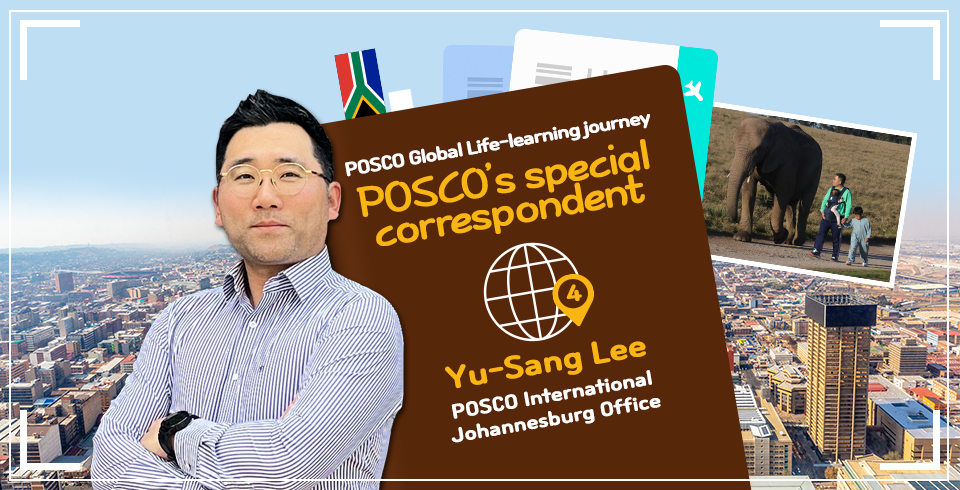
Are you curious about the lives of POSCO’s overseas expatriates who enjoy working and leisure in an exotic environment? POSCO Newsroom reports on the local lives of overseas expatriates. In place 4, we’ll introduce Yu-sang Lee, the leader who works at POSCO International’s Johannesburg branch.
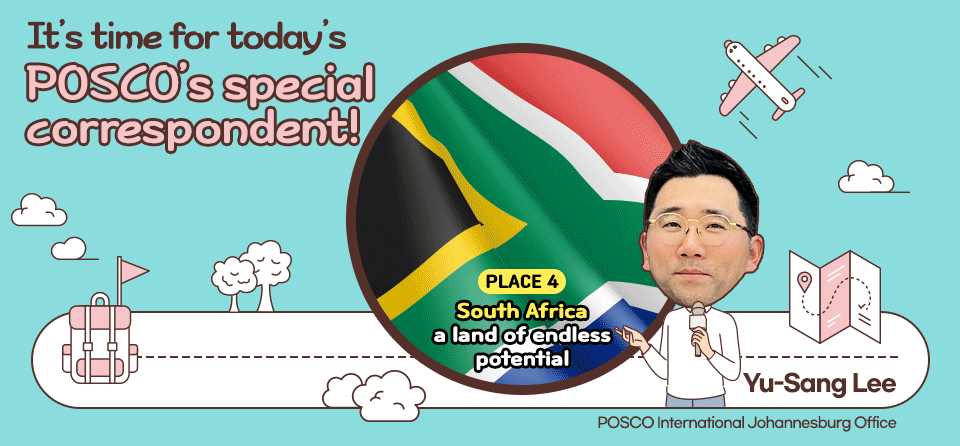

Hello, my name is Yu-sang Lee, and I work at POSCO International’s Johannesburg branch. I was first assigned to South Africa in December 2021, as the COVID-19 pandemic was nearing its end, and am now in my third year here. My primary responsibilities involve business development in the steel and raw materials sectors.
POSCO International operates a network in more than 80 locations globally, with branches in six countries in Africa, including South Africa, Nigeria, Morocco, and Egypt. Among these, our Johannesburg office has recently reestablished itself as the regional headquarters for 44 countries in Sub-Saharan Africa In this capacity, we play an important role in exploring and establishing POSCO’s presence in African markets.
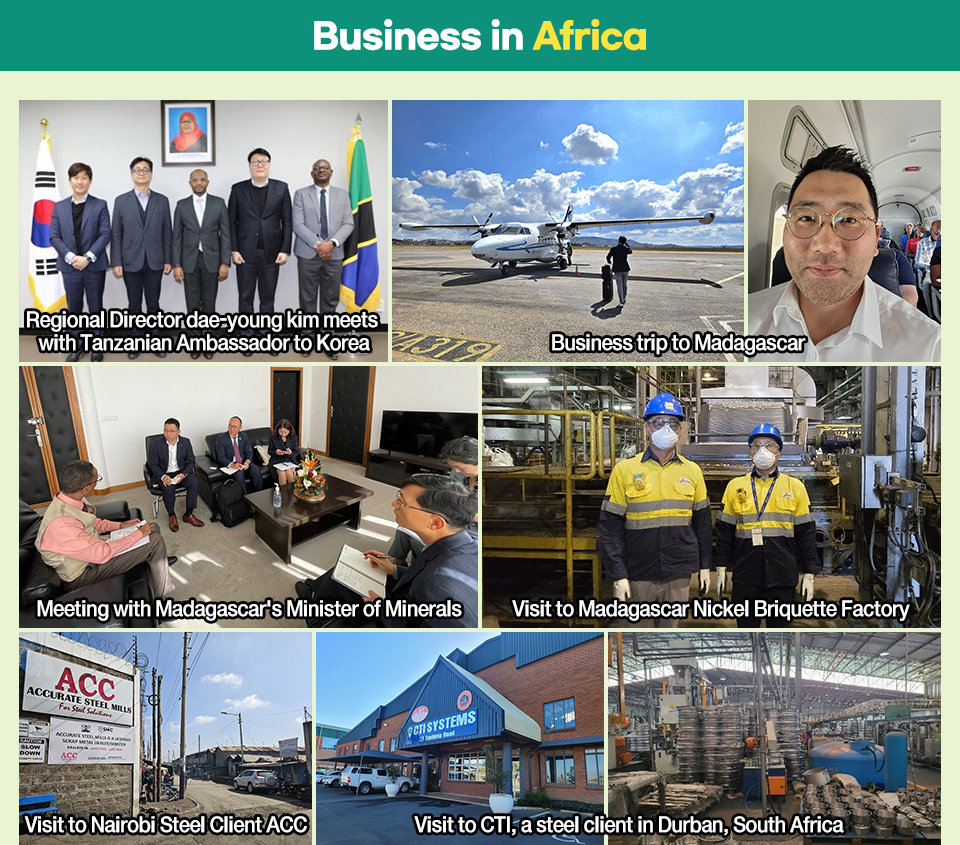
*Nickel Briquette: Nickel powder is pressed into a briquette shape.
Our main business areas include developing steel, raw materials, food resources, and project ventures. We actively explore various business opportunities in Africa covering not only southern Africa, including South Africa, but also East Africa (such as Kenya and Tanzania) and West Africa (including Nigeria, Senegal, and Ghana). We are committed to establishing the POSCO name and expanding our presence throughout the continent.

Twenty years ago, I had the unexpected chance to live in South Africa for about six months. Since then, South Africa has held a special meaning for me. Later, when I joined the company, my first overseas assignment happened to be in South Africa. Given my personal connection to the country, it felt like a remarkable opportunity almost as if it were meant to be. Over the past three years working here, I’ve seen firsthand the vast potential and opportunities in the African market.
Working in Africa is quite rare, so I had limited information before my assignment. Some colleagues offered humorous advice, saying, “Watch out for lions! I hear they sometimes walk around the streets!” Looking back, I can’t help but laugh. In fact, I found Africa to be surprisingly similar to Korea in certain ways. There is warmth and camaraderie among people, a love of music and food, and a strong respect for elders, so many aspects felt familiar. And, of course, there are no lions roaming the streets. Just like in Korea, you would have to go on a safari to see them!
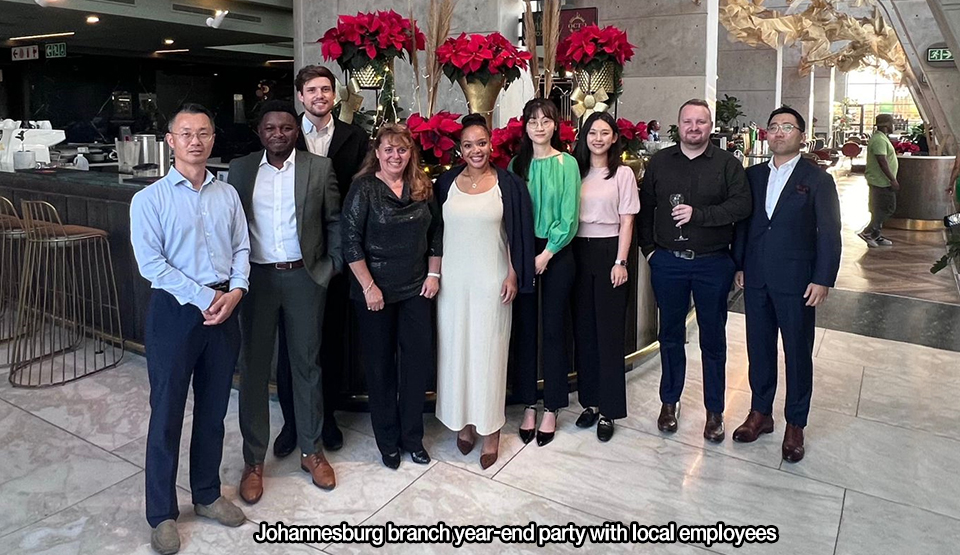
Many people say Africa is a place where “nothing is impossible, but nothing is easy.” When I first arrived in South Africa, I often felt impatient and stressed, and struggled to let go of the fast-paced mindset typical of Korea. However, as I observed projects that I nearly abandoned eventually coming to fruition, I came to understand that working and thriving here requires patience and adaptability. I think my role as an expatriate is to balance Korea’s fast-paced efficiency with Africa’s more relaxed rhythm.

This balance requires mutual understanding fostered with regular open communication. In South Africa, there is a tradition called the “braai,” a weekend barbecue where friends and family come together to enjoy food and exchange stories. At our office, we often hold Friday braais to create a space for informal connections. As we grill meat, drink beer, and engage in casual conversation, we find that new ideas for work often emerge naturally from these interactions.

Besides security, another challenging aspect of life here are the frequent power and water outages. We experience scheduled blackouts ranging from 2.5 hours to as long as 12 hours every day. These outages have made me truly appreciate the simple continuity of electricity and water supply, something I took for granted in Korea.
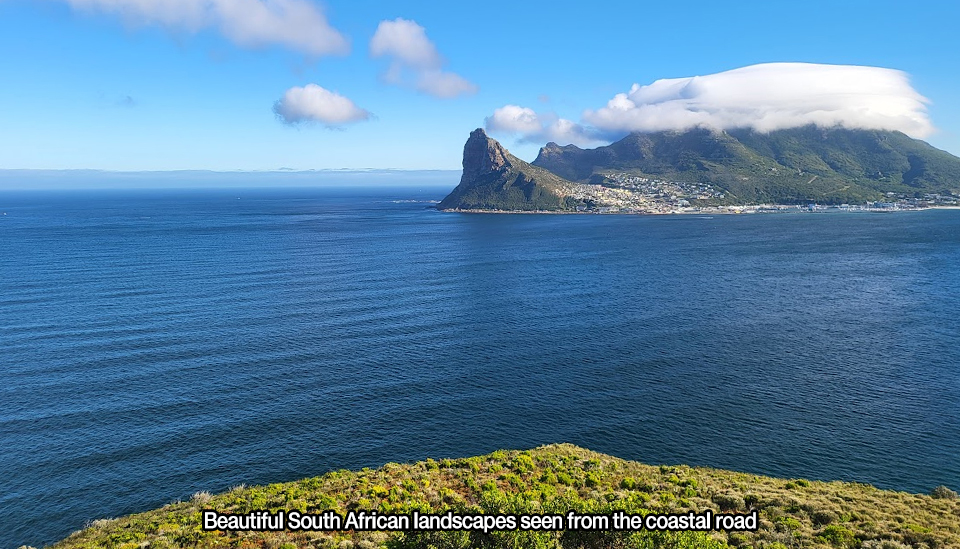
Hearing this, many people might wonder, “How do you manage to live there?” But aside from certain issues, South Africa is actually a very appealing place. The skies are bright and clear nearly all year, and the people are warm and welcoming. Watching my children run freely in the vast outdoors gives me a sense of openness and peace that makes concerns such as power cuts and security feel like minor inconveniences.


▲ Image source (center) : Gold Reef City site (www.goldreefcity.co.za)
Many people mistakenly believe Johannesburg is South Africa’s capital. In fact, South Africa has three capitals: Cape Town for the legislature, Bloemfontein for the judiciary, and Pretoria as the administrative capital. However, Johannesburg is the country’s primary economic hub. Johannesburg naturally evolved into South Africa’s economic hub following the discovery of gold here long ago, and it continues that legacy.
This is why large corporations, including many international ones from countries such as Korea, have established a presence in the city. Johannesburg is also home to several notable attractions, including the Apartheid Museum, which chronicles South Africa’s democratic journey and the legacy of its first Black president, Nelson Mandela, and Gold Reef City, a theme park featuring the southern hemisphere’s largest roller coaster and a 60-table casino.

Beyond Johannesburg, South Africa offers other remarkable destinations. There is Table Mountain, named for its flat, table-like summit, and the Cape of Good Hope, a site many of us learned about in school as the point discovered by Portuguese explorers Vasco da Gama and Bartolomeu Dias.

Other spots less familiar to Koreans but popular with European travelers, include Camps Bay with its beautiful beaches, Chapman’s Peak Drive, a coastal road renowned for its beauty often featured in car commercials, and Boulders Beach, where you can see wild penguins.
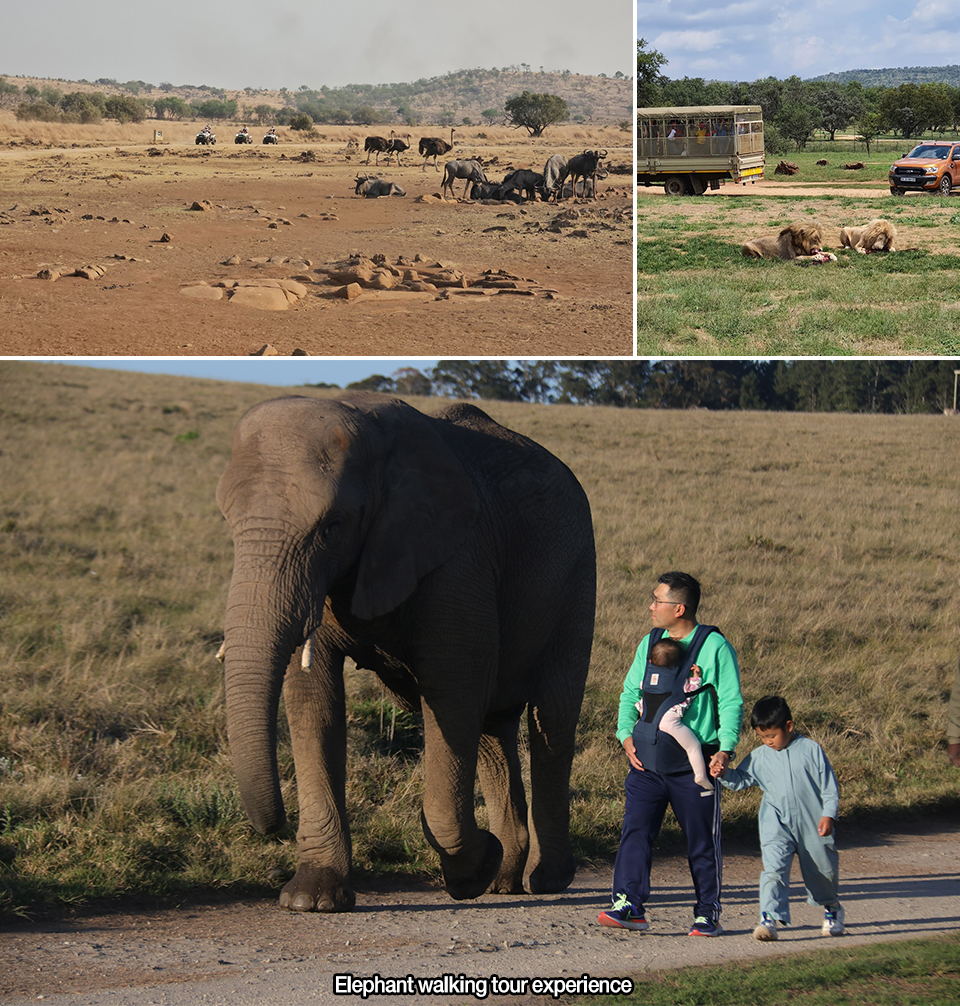
South Africa also offers unique wildlife experiences such as African-style quad-bike safaris where you can follow animals off road, or even walking with elephants. I once participated in an elephant walking experience with my child, and it was unforgettable.
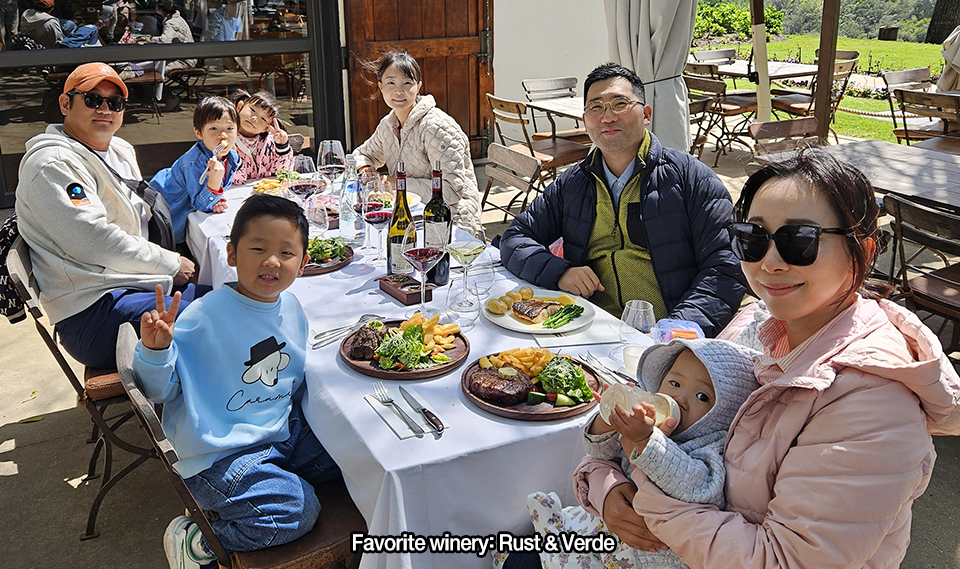
South Africa is also famous for its wine and steak. Although South African wine is not widely known in Korea, it is highly regarded for its quality and affordability, and those who try it here are often captivated. There are roughly 600 wineries in South Africa, and one of my favorites is Rust en Verde, where the wine-pairing steak menu is exceptional.

As an expatriate, I have a goal that I am deeply committed to achieving. I want to prove the old saying “Africa is a market of infinite potential and opportunity” with tangible business results. I hope that our initiatives will act as a catalyst to create opportunities to invest more resources and personnel and ultimately lead to additional success stories.
In South Africa, there’s a word that the late President Mandela cherished: “Ubuntu.” It embodies a sense of community and means “We exist through one another.” Unlike the past, when nations entered Africa only in search of resources, we now must recognize Africa’s potential for growth and work alongside its people to build a future together. Every member of our branch is committed to realizing the value of shared growth here in Africa and working tirelessly each day to foster this vision.
Enhancing Workforce Capabilities With POSCO Group’s Digital Skills Training!
This year, after hearing that POSCO Group’s Human Resources Development Center would be offering a Global Digital Skills Enhancement Program focusing on the latest trends and digital skills, I encouraged my team to participate. The program provided a structured curriculum designed with comprehensive resources for global employees, covering Python, a critical digital language, from beginner to advanced levels, so that each participant was able to receive training at their own skill level. Our team members who attended were very satisfied, and I felt rewarded by motivating them to take part.
① France Don-Gun Kim, Renault-resident engineer
② Marisol Soldevilla in POSCO-Mexico
③ Canada Ultium CAM Kyung-Eun Yoo & Ye-Sol Kim
